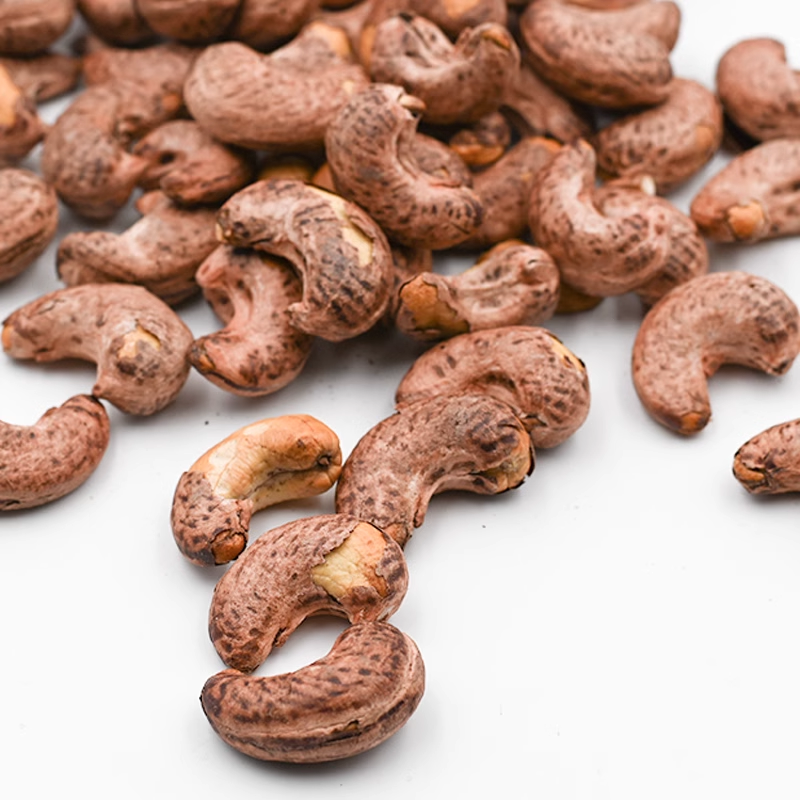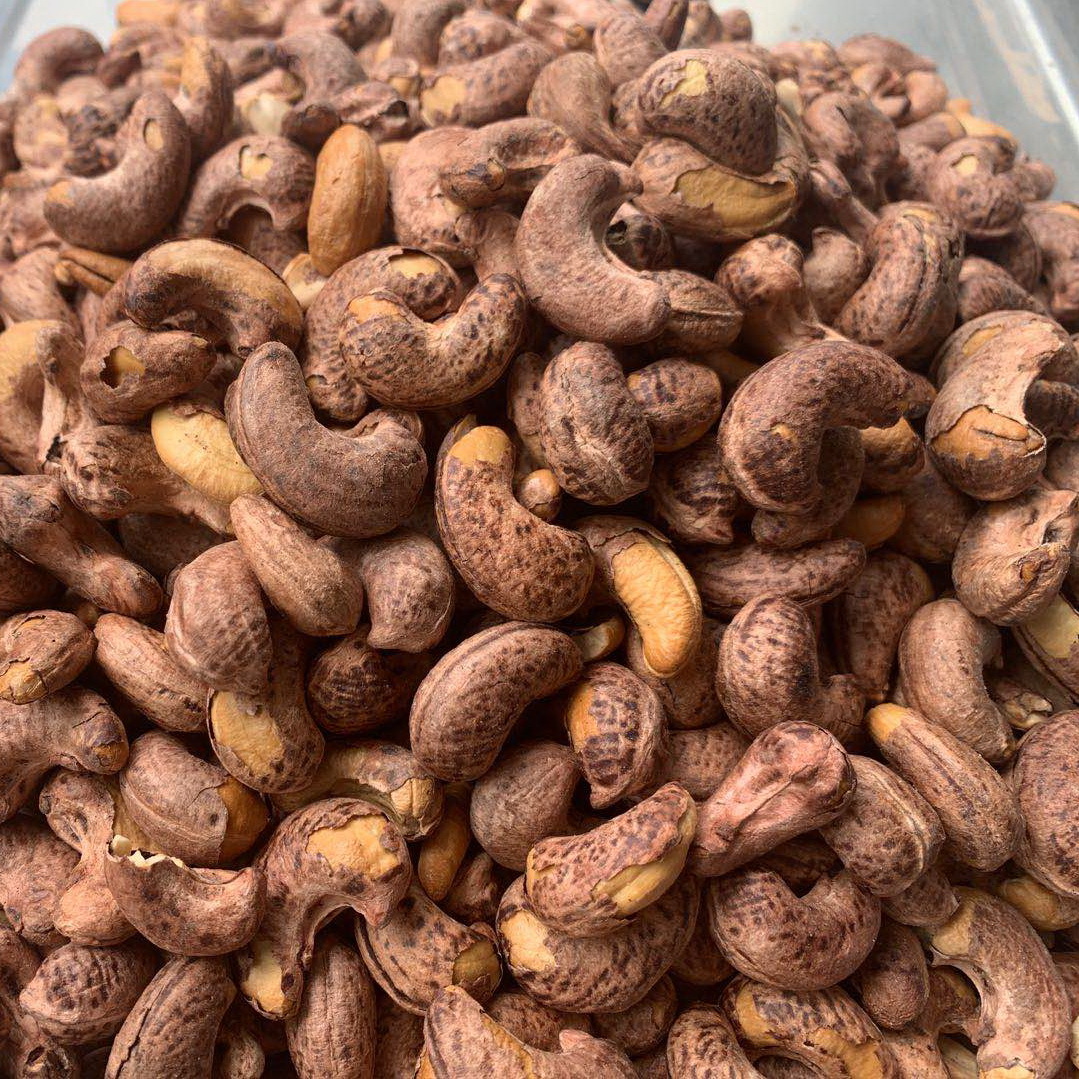In the journey toward a sustainable future, many resources previously considered waste are being re-evaluated and repurposed for innovative applications. One surprising candidate in this green revolution is the cashew nut shell. Often discarded or burned, cashew nut shells have a wealth of potential and are now being used in various industries as a source of eco-friendly products. From biofuels to lubricants and plastics, cashew nut shells are proving to be a hidden gem in sustainable development.
The Composition of Cashew Nut Shells: Why They’re Unique
The outer shells of cashew nuts contain a unique natural oil called cashew nut shell liquid (CNSL), a complex mixture of anacardic acid, cardanol, and cardol. CNSL has a variety of properties that make it highly versatile and valuable in industrial applications. Its strong binding, anti-corrosive, and heat-resistant properties have spurred industries to explore ways to integrate this byproduct into eco-friendly solutions.
Biofuels: A Cleaner Energy Source
One of the primary areas where cashew nut shells are making a sustainable impact is in biofuel production. The CNSL extracted from cashew shells can be converted into bio-oil, a cleaner alternative to traditional fossil fuels. Unlike conventional fuels, bio-oil from cashew shells is renewable and biodegradable, reducing the overall carbon footprint of the energy it produces. Furthermore, the residual biomass left after oil extraction can be used as a direct fuel source or processed into biochar, which has numerous applications, including soil enhancement.
By tapping into the biofuel potential of cashew shells, energy companies can reduce dependence on nonrenewable resources while also helping to minimize agricultural waste. This circular approach aligns with the principles of a circular economy and promotes sustainable energy development, a critical component in the fight against climate change.
Eco-Friendly Lubricants and Resins
Another area where cashew nut shells are gaining traction is in the production of lubricants. Traditional industrial lubricants are often petroleum-based, contributing to both pollution and dependence on fossil fuels. In contrast, CNSL-derived lubricants are plant-based and naturally biodegradable, making them an environmentally preferable alternative. CNSL’s unique chemical structure imparts strong friction-reducing properties, making it an effective ingredient in high-performance lubricants for machinery and automotive applications.
Beyond lubricants, the resin derived from CNSL has shown promising results in the creation of eco-friendly adhesives and coatings. These resins are resistant to heat, water, and corrosion, making them ideal for industrial applications. CNSL-based resins can replace conventional adhesives that rely on synthetic chemicals, many of which have a detrimental environmental impact. These sustainable adhesives offer not only environmental benefits but also performance benefits in sectors such as construction, packaging, and electronics.
Biodegradable Plastics: Reducing Plastic Waste
The world’s overreliance on plastics is a pressing environmental issue, but CNSL may provide part of the solution. Researchers are developing bioplastics from CNSL, offering a sustainable alternative to traditional plastics. Bioplastics made from cashew nut shells have the potential to be biodegradable, reducing the lasting environmental footprint associated with plastic waste.
This application is particularly exciting because it addresses two major global problems simultaneously: waste from cashew shell disposal and pollution from non-biodegradable plastics. By diverting cashew shells from landfills and using them in bioplastic production, companies can create products that offer the same utility as traditional plastics but with a fraction of the environmental impact.

Environmental Benefits: A Win-Win for Sustainability
Repurposing cashew nut shells into eco-friendly products has environmental advantages that go beyond reducing agricultural waste. This innovative use of byproducts supports sustainable practices by reducing dependency on nonrenewable resources and lowering greenhouse gas emissions. The cashew industry, largely located in tropical regions with rich biodiversity, can also benefit from these developments. By transforming cashew shells into valuable resources, farmers and producers can find new revenue streams, which supports economic stability and environmental conservation.
Further benefits include:
- Waste Reduction: The shift toward utilizing cashew shells for industrial applications reduces the waste generated by the cashew industry. Instead of burning or discarding these shells, they can be upcycled into valuable materials, contributing to a zero-waste approach.
- Lower Carbon Footprint: By replacing petroleum-based products with CNSL-derived alternatives, industries can reduce their carbon emissions. Biofuels from cashew shells, for example, emit fewer greenhouse gases compared to fossil fuels, making them an environmentally friendly choice.
- Promotion of Renewable Resources: Cashew nut shells are a renewable resource that can be cultivated sustainably. Their use in eco-friendly products encourages reliance on renewable resources, a key component of sustainable development.
Future Possibilities: Scaling Up and Driving Innovation
The use of cashew nut shells in eco-friendly products is just beginning, and there is immense potential for further innovation. As industries continue to explore the possibilities of CNSL, we may see even more applications emerge, such as eco-friendly paint, natural insecticides, and biodegradable composites. As researchers develop more efficient extraction and processing methods for CNSL, the cost-effectiveness and accessibility of these eco-friendly products are likely to improve, making them more attractive to mainstream markets.
By scaling up the production of CNSL-based products, industries can foster an eco-friendly supply chain that reduces waste and promotes renewable alternatives. Moreover, as demand for sustainable materials grows, the economic potential for cashew-growing regions could expand, fostering greater investment in rural communities and encouraging sustainable farming practices.
Conclusion
Cashew nut shells, once an overlooked byproduct, are proving to be a versatile and valuable resource in the creation of eco-friendly products. By transforming waste into biofuels, lubricants, resins, and biodegradable plastics, industries are paving the way toward a more sustainable future. The environmental benefits of repurposing cashew nut shells are multifold, from reducing carbon emissions to minimizing waste and promoting renewable resources. As awareness of this hidden resource grows, cashew nut shells may play an increasingly important role in the green economy, offering hope for a sustainable and eco-friendly world.
Ajigofarms is a reliable global agricultural purchase sourcing with profound expertise in the manufacturing, and exportation of food crops. We are tested, and trusted suppliers of all kinds of cash crops and food crops. Our constant supply chain solution makes exporting easy, quick, and safe, we are identified with timeliness and meeting up with deadlines. Regardless of the region you are located in worldwide, you can reliably order your Agric products and be rest assured of successful delivery.




